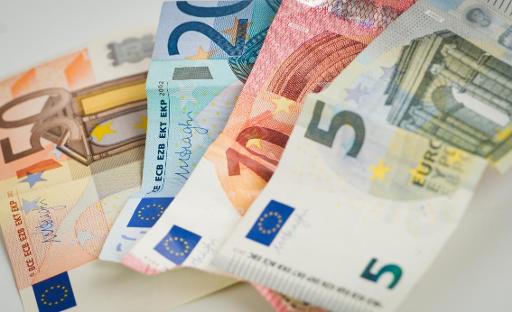The use of euro banknotes poses no major risk of infections, a senior European Central Bank (ECB) official said on Tuesday.
The ECB has conducted research with several European laboratories from which it appears that "coronaviruses can survive more easily on a stainless steel surface (e.g. door handles) than on our cotton banknotes, with survival rates approximately 10 to 100 times higher in the first few hours after contamination," said Fabio Panetta, a member of the institute's executive board, in a blog post published in several European newspapers.
"Other analyses indicate that it is more difficult for a virus to be transferred from porous surfaces such as cotton banknotes than from smooth surfaces like plastic," he added.
"Overall, banknotes do not represent a significant risk of infection compared with other kinds of surface that people come into contact with in daily life," Panetta concluded.
Related News
- A 'corona bond' would demonstrate that European solidarity exists
- Coronavirus study predicts no deaths after May 19, but experts are sceptical
That said, the article did not address the risk of infection linked to coins, which are made by mixing several metals including steel and zinc.
He did mention that "the ECB is also exploring possible future avenues" by looking into a digital euro, Panetta said, "which could be used by intermediaries or even by citizens through their electronic devices (such as smartphones or tablets) for their day-to-day spending needs."
The Brussels Times

